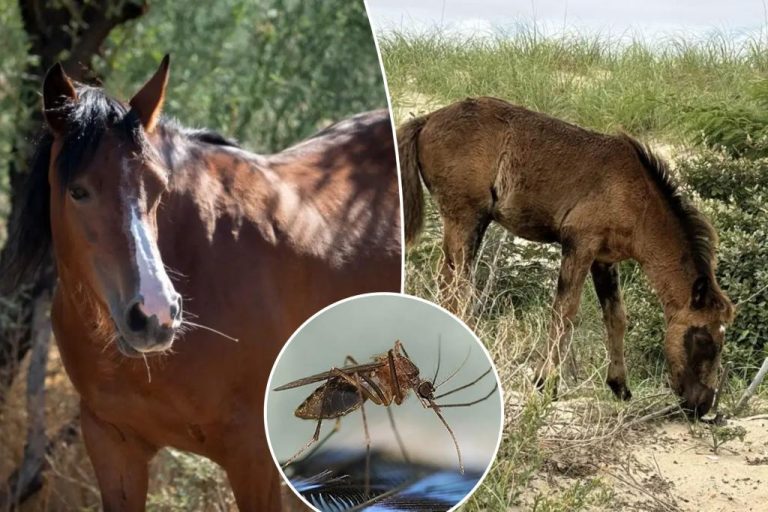A rare and deadly horse virus that can infect humans and kill about 30 percent of those infected has been found in several Hudson Valley counties and surrounding states.
Health officials say an elderly man in Massachusetts was recently infected and a horse in Orange County died from the virus.
Eastern Equine Encephalitis Virus (EEE) is transmitted from horses to humans by mosquitoes, and those who survive often develop lasting neurological problems, including coma and seizures, according to the Centers for Disease Control and Prevention.
“There is no vaccine or treatment available to prevent eastern equine encephalitis,” authorities warned.
A horse disease that can be transmitted to humans and is deadly has been discovered in upstate New York. Mark Henle/The Republic/USA Today Network Mosquitoes can carry and infect humans with EEE. CDC
In New England, a Worcester man in his 80s contracted EEE earlier this month, the first case in Massachusetts in more than four years.
“EEE is a rare but serious illness and a public health concern,” said Massachusetts Surgeon General Robbie Goldstein.
According to a report from the New York State Department of Health, EEE has been found locally in Orange County, as well as Ulster, St. Lawrence, Madison, Oneida, Cayuga, Wayne and Washington counties.
Unvaccinated horses have died from the disease in Newburgh, a city on the Hudson River, and in Atlantic County, New Jersey. Horses in Clinton County, New York, which borders Canada, have also tested positive for EEE.
“The positive test results in horses indicate that EEE is circulating among mosquitoes that bite mammals, including humans. We will continue to monitor and evaluate mosquito and virus activity,” said Dr. Alicia Poynter, Orange County Health Officer.
Health officials warn that horses can carry deadly diseases that can be transmitted to humans through mosquito bites. Christy K. Higgins/Progress-Index.com/USA TODAY NETWORK
A wild turkey in Maine was also recently diagnosed with EEE, and a deer in Connecticut died from EEE on August 12.
No one has been affected in New York so far, according to state officials, but sudden headache, high fever, chills and vomiting are all warning signs that usually appear four to 10 days after a mosquito bite.
Those most at risk are people aged 50 years or older and under 15 years.
“Mosquitoes will be present in our area through at least the end of September, so it's important to be aware of how you can protect yourself when spending time outdoors,” warned New York State Health Commissioner Dr. James MacDonald.
Prevention measures include wearing long sleeves, using insect repellent that contains DEET (diethyltoluamide), and making sure window screens do not have any holes.

